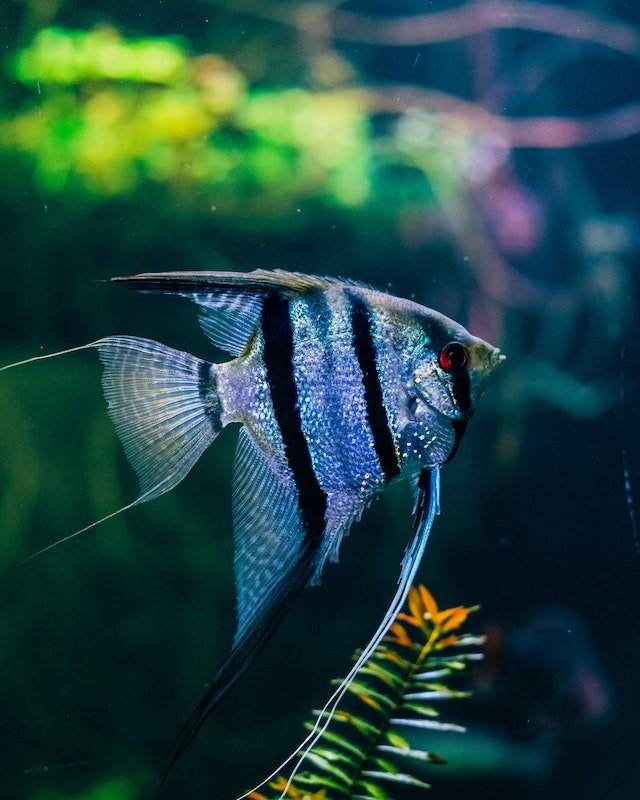Angelfish are popular among fish enthusiasts due to their striking appearance and docile nature. However, caring for these fish requires knowledge of their basic needs and feeding habits. One common question many fish owners ask is how long angel fish can go without food.
It is essential to understand that angel fish, like any other living creature, requires a consistent food supply to maintain their health and vitality.
While they can survive for a short period without food, it is not recommended to deprive them of food for an extended period.
The length of time angel fish can go without food depends on various factors, including their age, size, and overall health.
This article will explore how long angel fish can go without food. We will discuss the factors that affect their ability to survive without food and provide tips on ensuring they receive the proper nutrition they need to thrive.
Whether you are a new or experienced fish owner, understanding the feeding habits of angel fish is crucial to their overall well-being.
How Long Can Angel Fish Go Without Food?
Angelfish are popular with aquarium enthusiasts due to their unique appearance and peaceful nature. However, it is important to understand the needs of these fish to provide them with the best care possible.
One of the most common questions new owners ask is how long angel fish can go without food.
Adult angel fish can generally survive for up to a week without food. However, leaving them without food for this long is not recommended as it can cause stress and weaken their immune system.
It is best to feed them with small amounts of food at least once a day.
On the other hand, juvenile angel fish require more frequent feedings as they are still growing and developing. Feeding them 2-3 times a day, with small amounts of food, is recommended. As they mature, the frequency of feedings can be reduced to once a day.
It is important to note that overfeeding can be just as harmful as underfeeding. Excess food can lead to poor water quality and health problems for the fish. It is recommended only to feed them what they can consume within a few minutes.
Factors Affecting Angel Fish Feeding
Angelfish are a popular freshwater species that require proper feeding to maintain their health and well-being. The following factors can affect how long an angel fish can go without food:
Size and Age
The size and age of the angel fish can affect their feeding habits. Younger and smaller angel fish require more frequent feedings as they have faster metabolisms and need more energy to grow.
Adult angel fish can go longer without food as they have slower metabolisms and can store energy reserves.
Water Temperature
Water temperature affects the metabolism of angel fish. Warmer water temperatures increase the metabolism of angel fish, which means they require more food.
In contrast, colder water temperatures decrease the metabolism of angel fish, which means they require less food.
Type of Food
The type of food provided to angel fish can also affect how long they can go without food. Angel fish require a balanced diet that includes both protein and vegetables.
Overfeeding or underfeeding can lead to health problems in angel fish.
Tank Environment
The environment of the tank can also affect the feeding habits of angel fish. A clean tank with proper filtration and aeration can promote healthy feeding habits in angel fish.
In contrast, a dirty tank with poor water quality can lead to reduced feeding habits and health problems in angel fish.
Stress
Stress can also affect the feeding habits of angel fish. Any changes in the tank environment or the addition of new fish can cause stress in angel fish, leading to reduced feeding habits.
Providing a stress-free environment and reducing any changes in the tank can promote healthy feeding habits in angel fish.
Frequency of Feeding
Angel fish are omnivores, meaning they can eat meat and plant-based foods. In their natural habitat, they feed on small fish, insects, and algae.
Providing them with a balanced diet mimicking their natural feeding habits is essential in captivity.
The frequency of feeding depends on the age and size of the fish. Younger and smaller fish require more frequent feedings than older and larger ones. As a general rule, it is recommended to feed adult angel fish once or twice a day.
Overfeeding can lead to health problems such as obesity and poor water quality. It is essential to monitor the amount of food given to the fish and remove any uneaten food after 5-10 minutes to prevent it from decomposing and polluting the water.
Angel fish can survive without food for up to a week, but it is not recommended to starve them intentionally.
If the owner needs to leave for a few days, it is advisable to use an automatic feeder or ask someone to feed the fish in their absence.
In summary, feeding frequency is an essential aspect of angel fish care. Owners should provide a balanced diet and avoid overfeeding.
Feeding adult angel fish once or twice a day and removing any uneaten food after 5-10 minutes is recommended. While angel fish can survive without food for up to a week, it is not recommended to starve them intentionally.
In conclusion
While adult angel fish can survive for up to a week without food, leaving them without food for this long is not recommended. Regular feedings with small amounts of food are necessary for their health and well-being.




